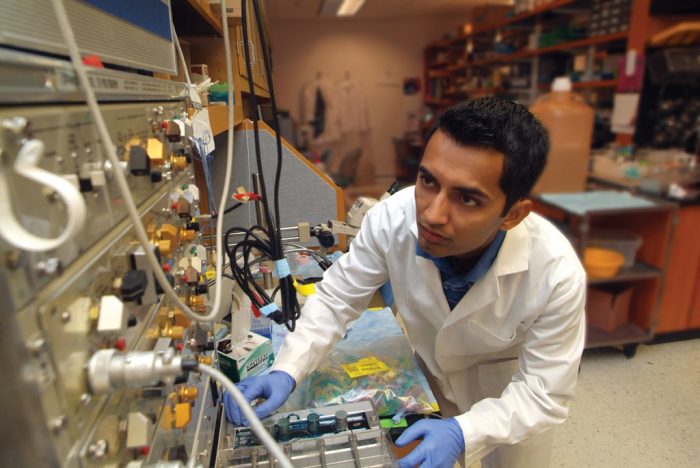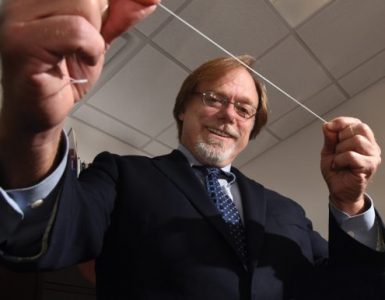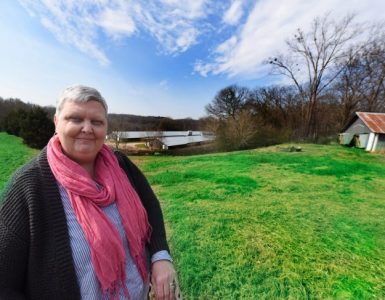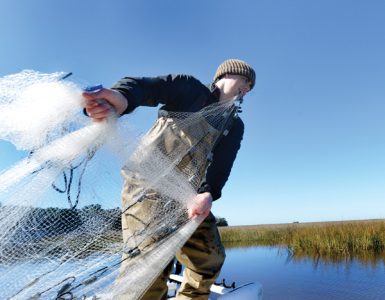When Peyton Marshall came to Augusta in the summer of 2016, she had only a basic understanding of biology.
Her true passion was physics, and although she’d done some previous work involving the use of ultrasound to detect changes in osteoporotic bone, her research focus had always been more technologically driven.
That all changed when she met Dr. Meghan McGee-Lawrence, assistant professor of cellular biology and anatomy at the Medical College of Georgia.
An undergraduate physics major at Rhodes College in Memphis, Tennessee, Marshall made the more than 500-mile trek to Augusta University to participate in the Student Training and Research Program (STAR) — an undergraduate program sponsored by The Graduate School that provides research experience for students interested in pursuing an advanced degree in the biomedical sciences. Over the course of the nine-week program, students participate in a biomedical research project guided by a member of Augusta University’s faculty. Afterward, students get a chance to show off their work at a formal poster presentation. Some even move on to publication.
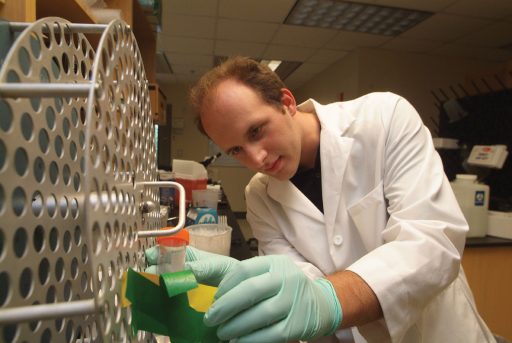
During her stay, Marshall worked alongside McGee-Lawrence, an expert in the fields of skeletal structure and biomechanical strength research, on a project titled “Pharmacological Modulation of Osteocyte Plasma Membrane Disruption (PMD) Repair Affects Cell Survival.”
The match, it turns out, couldn’t have been more perfect.
“Peyton’s been fantastic,” McGee-Lawrence said. “She’s done an incredible job, and some of the data she generated this summer were a really important addition to a grant I submitted to the National Institutes of Health a few weeks ago.”
Abigail Drescher, manager of student recruitment and admissions for The Graduate School, said the program represents the best of both worlds for students, research faculty and Augusta University as a whole.
“Our ultimate hope is that these students will eventually apply to our Biomed PhD, MD/PhD or MD programs,” she said. “Even if they don’t, however, our faculty get a chance to work with some amazing students who are genuinely interested in their respective fields, and the students take away a wonderful experience from Augusta University.”
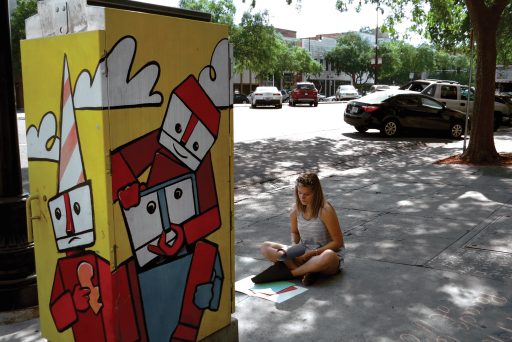
She also stressed that McGee-Lawrence and Marshall’s experience was the rule rather than the exception.
“Many of our researchers have been impressed with the caliber of students coming into the program,” Drescher said. “These students come from institutions all over the country, from Ohio, Tennessee, Michigan and Maine, and they come with such great enthusiasm for the work.”
Drescher understands the benefits of enjoyable undergraduate research experience better than most. Prior to joining The Graduate School, she served as coordinator of the university’s Center for Undergraduate Research and Scholarship (CURS), where she worked to expand another summer scholarship opportunity: The CURS Summer Research, Scholarship and Creative Activity Program.
Melissa Knapp, CURS coordinator, said the added incentive draws in a wealth of researchers and students from the university’s Augusta campuses. In total, six of the university’s nine colleges and schools were represented across the program’s six- and nine-week sessions.
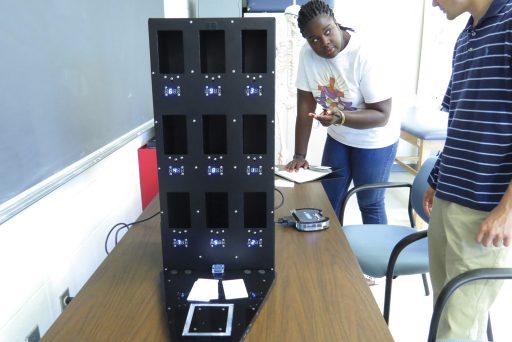
“We had 16 projects this summer involving about 40 students from a variety of disciplines,” Knapp said. “History, communications, psychology; we look for every discipline because we want our students to understand that research isn’t just about the hard sciences.”
To strengthen that point, CURS awards grants to proposals from a variety of disciplines in addition to offering stipends for both students and 10-month faculty. While stipends remain consistent across the board ($2,000 to $2,800 for students; $1,000 to $1,500 per student for faculty members), the amount awarded for projects varies from proposal to proposal. In 2016, awards ranged from $90 (“Unilateral and Bilateral Training Effects on Bilateral Back Squat Strength”) to $8,860 (“Continued Measurement of the Interactions of Low Energy Gamma Rays with Dense Metals for Application in Nuclear Medicine Technology”).
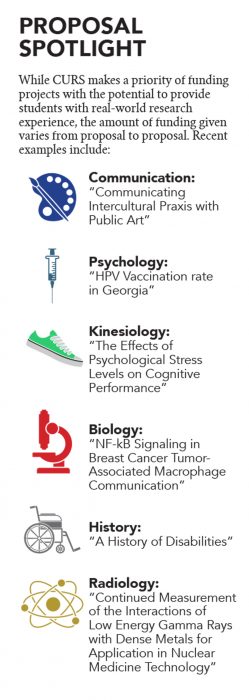 But aside from the opportunity to work alongside experienced research professionals, the Summer Scholars Program also gives students a chance to broaden their presentation skills.
But aside from the opportunity to work alongside experienced research professionals, the Summer Scholars Program also gives students a chance to broaden their presentation skills.
“The Summer Scholars Program ends in July with a poster session,” Knapp said. “And that gives students a chance to practice for maybe presenting their work at a future research conference or at one of our Brown Bag sessions.”
Held throughout the spring and fall semesters, the CURS Brown Bag Series allows students to show off the methodology, process and results of their research. Think of them as “miniconferences.”
Many of the Brown Bag presentations given each semester stem from the work done during the Summer Scholars Program, Knapp said. And that’s not a coincidence.
“We encourage our Summer Scholars to take their work and share it with their peers,” she said. “Whether they present here at one of our Brown Bags or at another conference, we want them to get that experience.”
Undoubtedly, both programs have undergraduate interests at heart. But despite their divergent foci, Drescher said, the STAR Program and the CURS Summer Scholars Program also have a number of goals in common as well.
“It’s about getting and keeping these students and seeing them progress and graduate from our institution with an understanding of research that represents us, and them, faithfully,”
she said.

